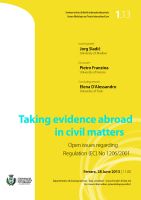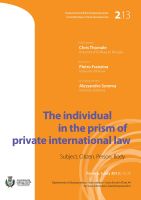Brekoulakis on International Arbitration Scholarship and the Concept of Arbitration Law
Stavros Brekoulakis (Queen Mary University of London) has posted International Arbitration Scholarship and the Concept of Arbitration Law on SSRN.
This article is about the concept of arbitration law and its relationship with international arbitration scholarship. It argues that the field of international arbitration scholarship has developed in isolation and never fully engaged with the crucial movements of international legal scholarship that advanced a more progressive and humanitarian concept of international law. The dearth of interdisciplinary scholarship in arbitration has had two undesirable implications. First, it has had a negative impact on how non-arbitration scholars and the public perceive arbitration. Secondly, and more importantly for the purposes of this article, it has crucially impaired the concept and autonomy of arbitration law. By remaining adherent to an old-fashioned version of positivism that accepts state regulation only, arbitration scholarship has failed to develop an account of international arbitration as a non-state community that has the capacity to produce legal rules. Eventually, it has failed to advance persuasive claims of normativity and autonomy of international arbitration. The article revisits the concept of arbitration law and advances the thesis that arbitration community has the normative potency to generate procedural practices and standards that guide the conduct of arbitration and breed expectations of compliance.
The paper is forthcoming in the Fordham International Law Journal.



 The last issue of the Revue critique de droit international privé was just released. It contains four articles and several casenotes.
The last issue of the Revue critique de droit international privé was just released. It contains four articles and several casenotes. The Law School of the Paris Institute of Political Science (Sciences Po) will hold the final meeting of its workshop series for this academic year on
The Law School of the Paris Institute of Political Science (Sciences Po) will hold the final meeting of its workshop series for this academic year on